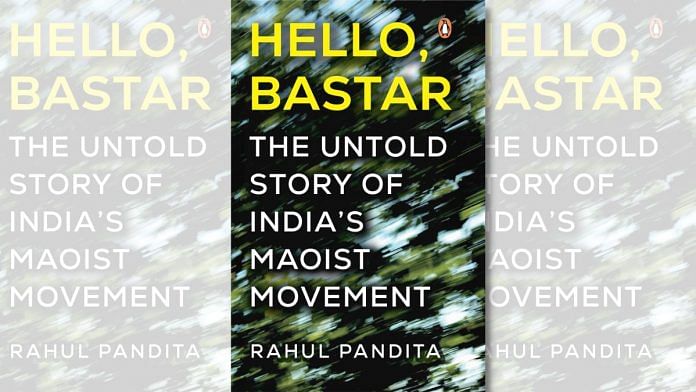New Delhi: Author Rahul Pandita’s latest book ‘Hello Bastar’ provides an authoritative account of how a handful of men and women, who believed in the idea of revolution, entered Bastar in central India in 1980 and created a movement that New Delhi now terms as India’s biggest internal security threat.
In ‘Hello Bastar: The Untold Story of India’s Maoist Movement’, the author chronicles the events that led to the Maoist movement taking root in 10 states in India, which subsequently masterminded murderous attacks against the establishment in the name of the poor and the marginalised.
The book looks at the existence of Maoist guerillas and tribals in the Red Zone. It is a combination of first-person storytelling and intrepid analysis, and is based on in-depth, on-the-ground reporting and interviews with Maoist leaders, including supreme commanders Ganapathi, Kobad Ghandy, and others who are imprisoned or have been killed in police encounters.
The book also provides an authentic introduction to a subject that is much debated in the media. Armed with the author’s ringside view of the movement, the book is different from other documents which are based on secondary sources.
Having personally studied the Maoist struggle in Chhattisgarh – interacting with many revolutionaries and their sympathisers — the author has added much reliability to the information.
Pandita’s book also coincides with the 14th death anniversary of Anuradha Ghandy. It is an occasion to remember her monumental contribution to the understanding of the caste and Dalit question in India and the significance of its resolution for the democratisation of the individuals, and with it, the society.
To the ordinary reader of mainstream media, the movement may look only violent. But this book says the violence is secondary. The key question remains how to equitably develop the country and its people.
The book is a useful read for varied sections of people to understand the root causes of the four-decade Maoist movement in India.
Rahul Pandita is a journalist and an author based in Delhi. He is a 2015 Yale World Fellow. He has also authored ‘The Lover Boy of Bahawalpur: How the Pulwama Case was Cracked’, and co-authored ‘The Absent State’.
He has extensively reported from war zones, including Iraq and Sri Lanka. In 2010, he was given the International Red Cross Award for conflict reporting. Rahul is also the co-writer of Vidhu Vinod Chopra’s 2020 film, ‘Shikara’.
Also read: ‘The People of India’ — new book traces grassroots political actors, how they shape New India



